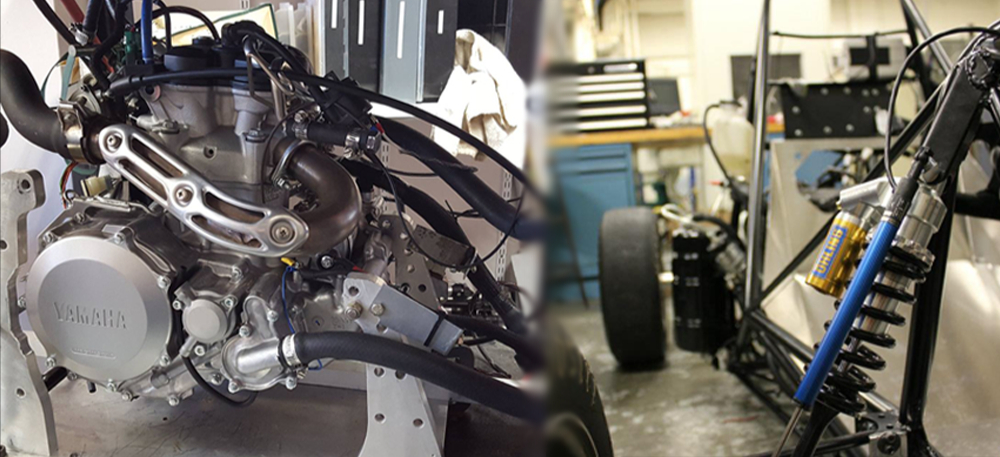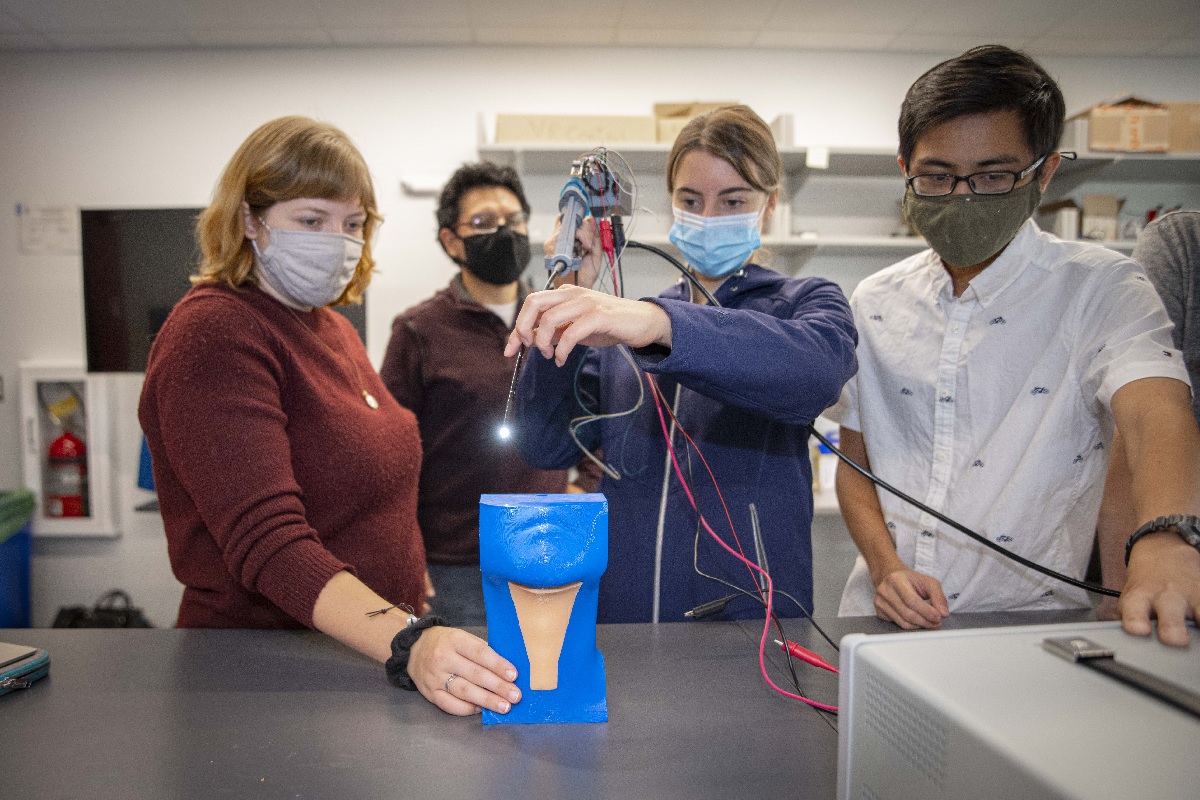Researchers at Worcester Polytechnic Institute (WPI) and Albany Medical College, along with corporate partners GE Global Research and Acoustic MedSystems Inc., have received a five-year, $3.5 million award from the National Institutes of Health (NIH) through the National Cancer Institutes’ (NCI) Academic-Industrial Partnership program, to continue development of an innovative robotic system that, operating within an MRI scanner, can deliver a minimally invasive probe into the brain to destroy metastatic brain tumors with high-intensity therapeutic ultrasound under real-time guidance.
A closer view of the prototype robot (at center) guiding the ultrasound probe. The black box at right is the modular controller for the robot.
The grant, the second major NIH award for the system’s development, will enable the research team to model the behavior of the ultrasound ablation system, implement thermal monitoring to provide real-time feedback on dose delivery, optimize and verify the effectiveness of the system, and certify its readiness for human clinical trials. The research team is led by principal investigators Gregory S. Fischer, PhD, associate professor of mechanical engineering and robotics engineering at WPI and director of the Automation and Interventional Medicine Laboratory, and Julie G. Pilitsis, MD, PhD, chair of the Department of Neuroscience and Experimental Therapeutics and professor of neurosurgery at Albany Medical College.
Fischer and Pilitsis will work closely with the two corporate partners. Acoustic MedSystems in Savoy, Ill., will design, build, and validate the needle-based therapeutic ultrasound (NBTU) probe and provide the software to visualize and control it. GE Global Research Center in Niskayuna, N.Y., will implement thermal imaging capabilities to monitor, in real time, the ablation of tumor tissue, and will collaborate on integrating the robotic system with its clinical MRI scanner.
Brain metastases, which are among the most common type of brain tumors, occur when primary cancers in other organs spread to the brain. About 170,000 new cases are diagnosed each year in North America. Currently, the only treatment options are chemotherapy, radiation, and surgery, all of which have limited success and can harm unaffected brain tissue; in addition, surgery is possible only when tumors are in accessible locations.
The system being developed with the NIH award takes a different approach to treatment. It uses a thin (2 mm in diameter) probe that can be inserted into the brain through a small hole drilled in the skull and placed within the tumor. By adjusting the probe’s orientation and power output, doctors will be able to deliver doses of high-intensity ultrasound energy that are lethal to tumors, while minimizing damage to surrounding brain tissue. High-intensity ultrasound energy kills tissue by heating it (called thermal ablation), making it possible to use an MRI scanner’s ability to detect thermal emissions to monitor the dose delivered to the tumor.




